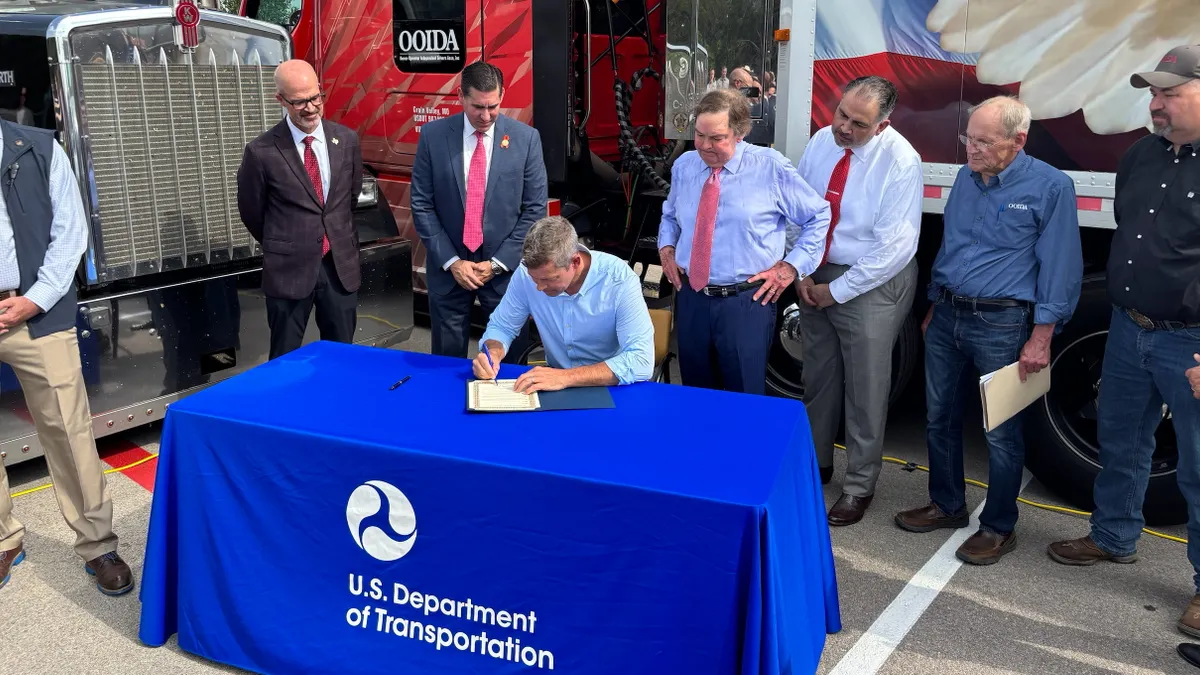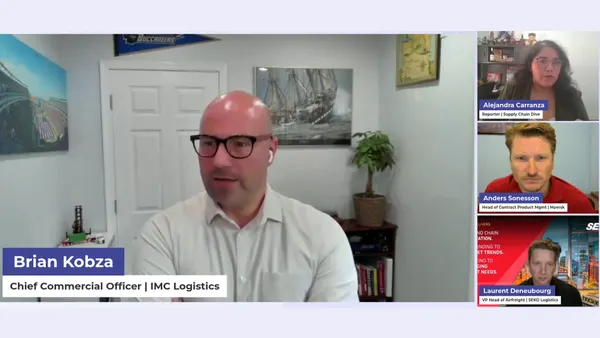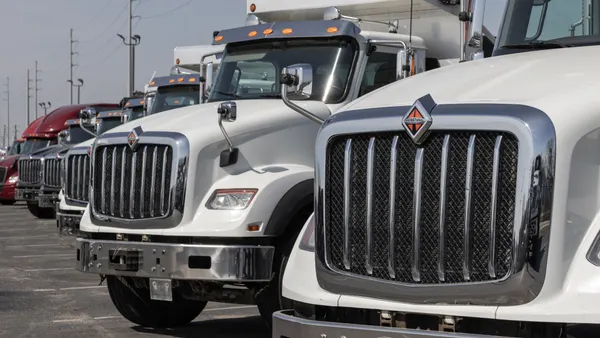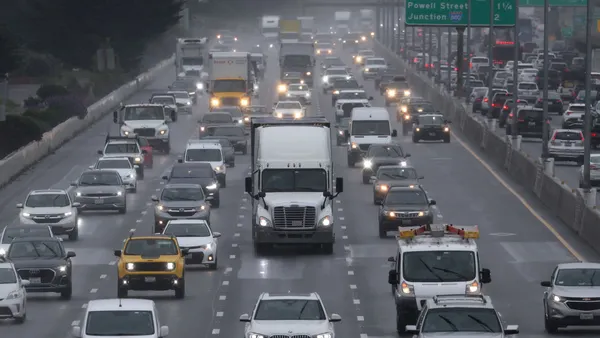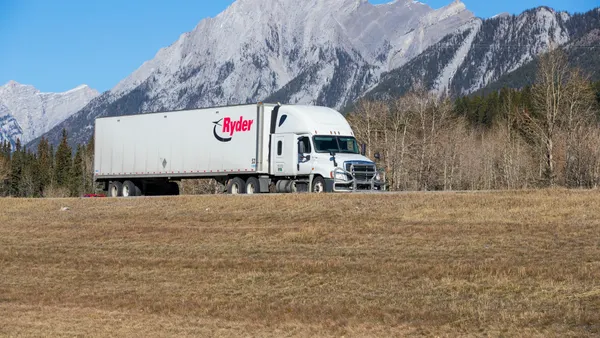Dive Brief:
- Schneider National expects enforcement of California’s AB5 law, and any other similar laws requiring independent owner-operators to be reclassified as employees, to compound a driver capacity crunch, CEO Mark Rourke said during a Q2 earnings call.
- The carrier eliminated independent contractors from its California operation years ago in advance of the law, Rourke said. "What surprised me is the number of folks ... willing to move out of the state for us to do that," the CEO said.
- “If our experience is reflective, we will start to see an attrition of capacity in those markets that go to that type of kind of rulemaking if you will,” he said. “It will be disruptive and people haven't prepared for it.”
Dive Insight:
Schneider’s overall roster of owner-operators has shrunk by hundreds in the past year.
The carrier contracted with about 2,400 owner-operators in Q2 2022, down from about 2,800 as of Q1 2021, according to investor presentations.
For some in California, Rourke said, AB5 has been “the last straw to get out of the industry.”
Rourke did not specify how many of Schneider’s owner-operator partners moved out of the state to continue working as independent contractors instead of employees. But it had an effect, he told investors: “You kind of change the geographic mix of your fleet.”
Matt Schrap, CEO of the Harbor Trucking Association, which represents West Coast port drivers, said the uncertainty surrounding a path forward as independent owner-operators under AB5 has prompted some to resort to relocating or leaving the industry.
“They're taking drastic measures, like moving their whole entire family's state in order to keep their business open,” Schrap said.
But he added that the law, and the California Air Resources Board engine model year standards threatening to take one-third of San Pedro Bay trucks off the road, have only accelerated years’ worth of attrition in the state’s freight industry.
“It's a consistent perspective, whether it's ARB, whether it's AB5 — pick your acronym,” he said. “This is not something that's new.”
The law, which the industry unsuccessfully challenged to the Supreme Court, seeks to extend worker benefits to independent contractors. But it threatens to upend the businesses of 70,000 owner-operators in California, causing further supply chain disruption, especially in Los Angeles and Long Beach, the busiest port complex in the country.
While Schneider no longer uses California owner-operators, other companies are actively removing them from their fleets. Landstar, which counts 365 California drivers among its 11,000 owner-operator partners, is advising them to relocate out of state or pursue other options.







